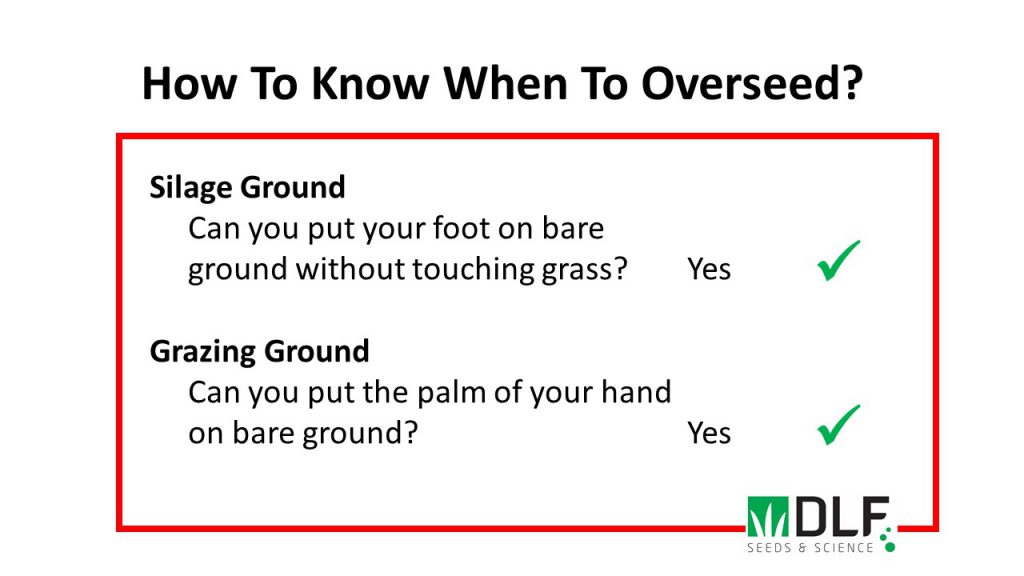DLF is the world’s largest grass seed breeder. The company runs a grass trial and breeding programme in Co. Waterford. In this article, Paul Flanagan – general manager at DLF Ireland – puts the latest weather events into context and how this weather has affected ryegrass swards.
“With a birth certificate dated 1982, it might seem amiss of me to be comparing the challenges of this summer to the summer of 1976. Hence, I am referring to the testimony of elders. There was a very good article in The Irish Times in early July on the topic.
“The article suggested that in 1976, chocolate melted in the shops, beer went into short supply as the country quenched its thirst and sharks came closer than ever before to Irish beaches. Does this sound familiar?”
Grass recovery
The drought has had a severe effect on farms. Paul travels the country with his work and believes that farmers are under the assumption that ryegrass will recover from the season’s drought.
“For the most part, ryegrass will come back. I have no doubt that in a lot of cases this will be a slow and patchy return. The younger the ley, the faster the recovery time and this is evident even now after the rain we received in the week gone by.
First and second leys are beginning to change colour, whilst older pastures are yet to move.
Paul added that the window for recovery this year is short between now and the winter time.
“If we are to have early grass in spring, action needs to be taken now. To put it into perspective, the most likely position on farms this autumn is that there will be no closing-up of fields to build covers for spring.
“What I expect is that in a lot of cases, every blade of grass will be grazed or cut in order to stretch winter forage supplies for as long as possible and to keep culling to a minimum.”
Planning for spring
While spring time seems a long distance away and there is a tough winter ahead, Paul urges farmers to plan for grass in February and March if possible.
“While it is understandable given the current critical fodder shortages, one area of concern that I have come across is the fact that very few farmers are planning towards February and March next year.
“The facts are farms will largely have no cover going into spring, putting you four weeks behind. There is also patchy perennial ryegrass recovery due to drought.
Over the coming weeks you have to assess your grassland for the impacts of the drought and make decisions with spring grass in mind.
Over-seeding
In the video below, DLF’s Damien McAllister gives his top tips on over-seeding. He describes how action this autumn grows grass.
“At an absolute minimum, farmers should consider over-seeding worst affected fields in August and September. This will increase the perennial ryegrass content, which boosts their ability to grow grass in early spring.”
Paul advises farmers to use tetraploid varieties when over-seeding. Nitrogen-covered seed can also help with establishment.
“They have a larger seed than diploids and this helps with seed-to-soil contact. Also, consider using nitrogen-coated seed, which aids the speed of establishment and gives the small seedlings a competitive advantage when getting rooted.”
ProNitro – a nitrogen-coated grass seed – is exclusive to DLF and is available through your local merchant.
For more details on ProNitro call DLF at: 051-897060.
Also Read: Over-seeding: A cost-effective option for more grass in 2018The DLF team will be attending an open day – on August 9 – on the farm of the company’s grass partners David and Ivan Thomas. The event runs from 12:00pm to 4:00pm in Derrycooley, Rahan, Co. Offaly.
“Come along to speak to us first hand about your upcoming reseeding plans. Hosted by Lely, the day will showcase Lely robotic milking systems and how it has changed the Thomas family farm.”
Contact Niall McGauran for more details on the Lely open day at: 086-4178424.
For more information
For more information on DLF Ireland click here .
You can also find DLF Ireland on Facebook and @DLF_IRL on Twitter or you can contact DLF Ireland at: 051-897060 or e-mail: [email protected].


